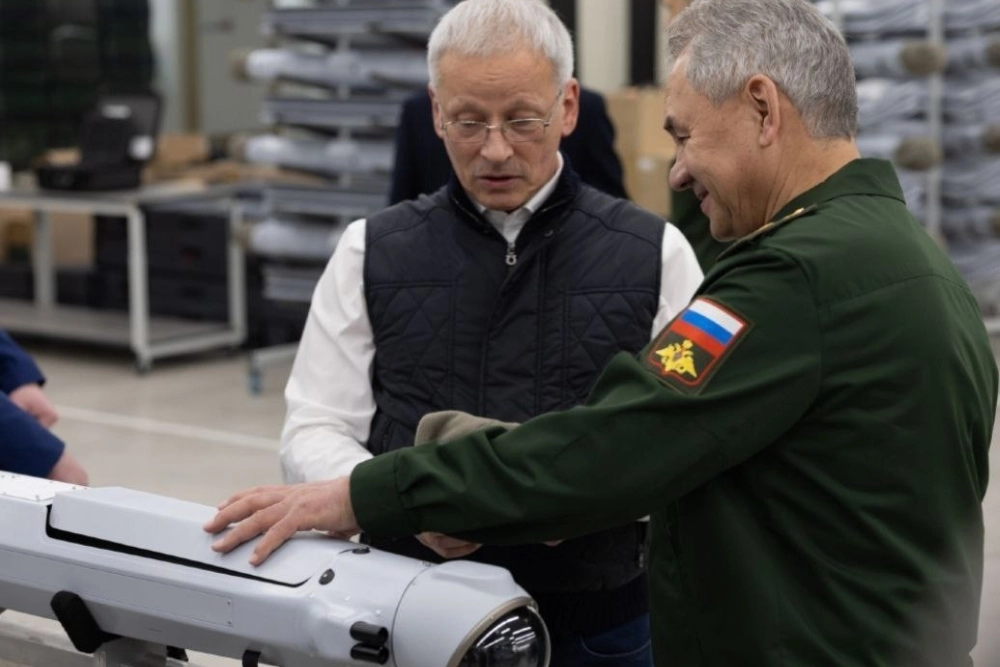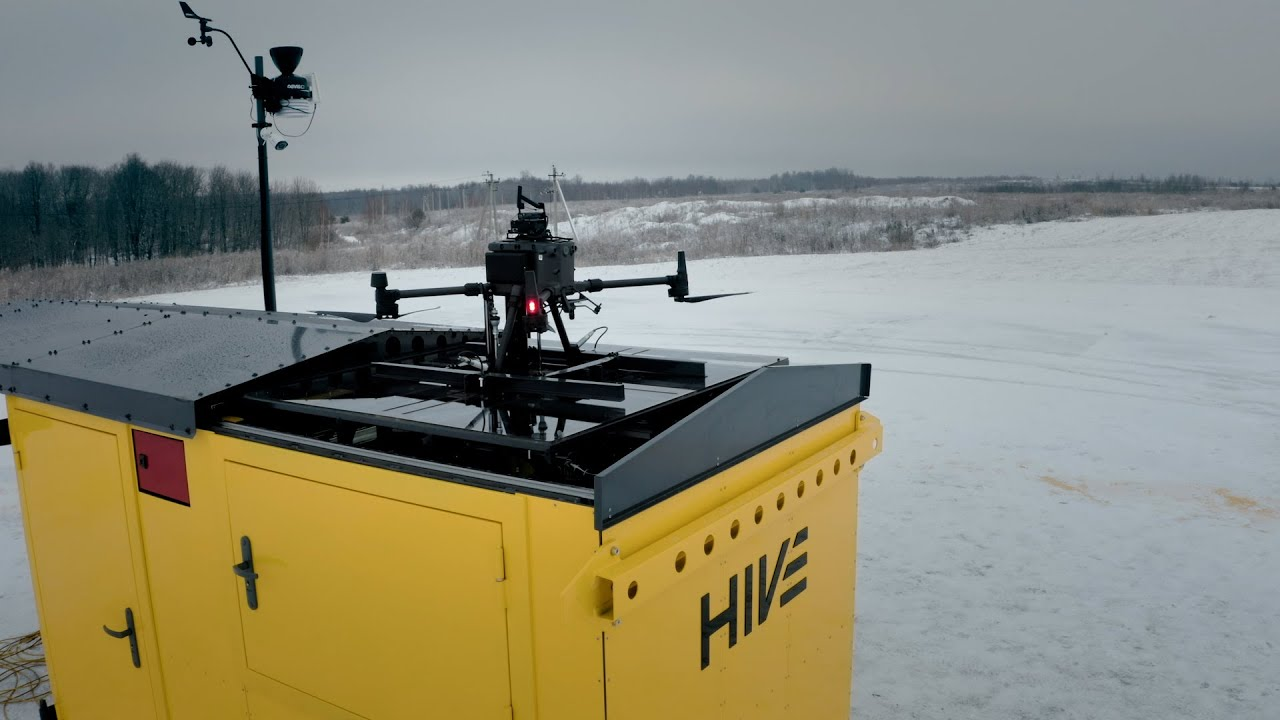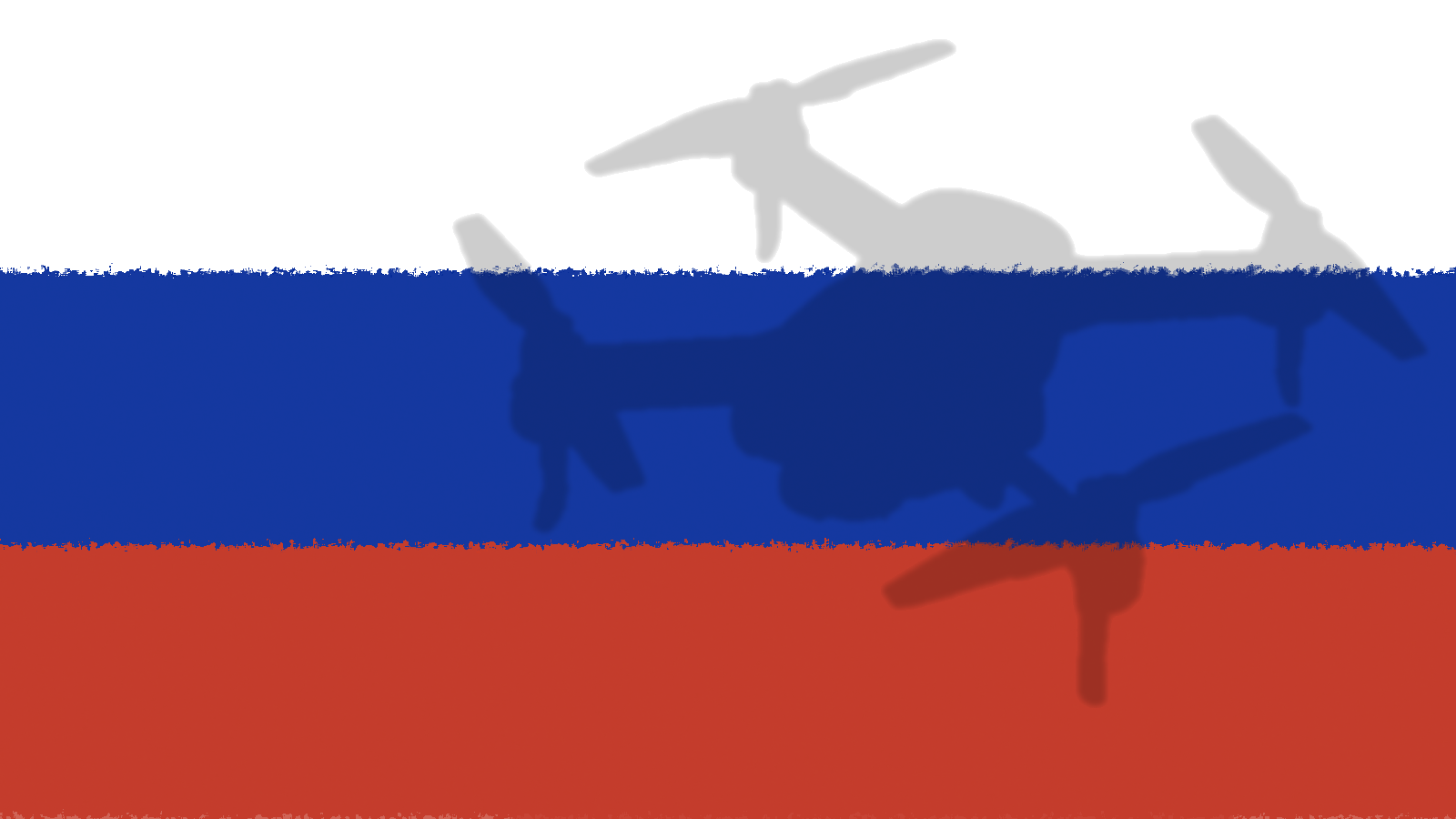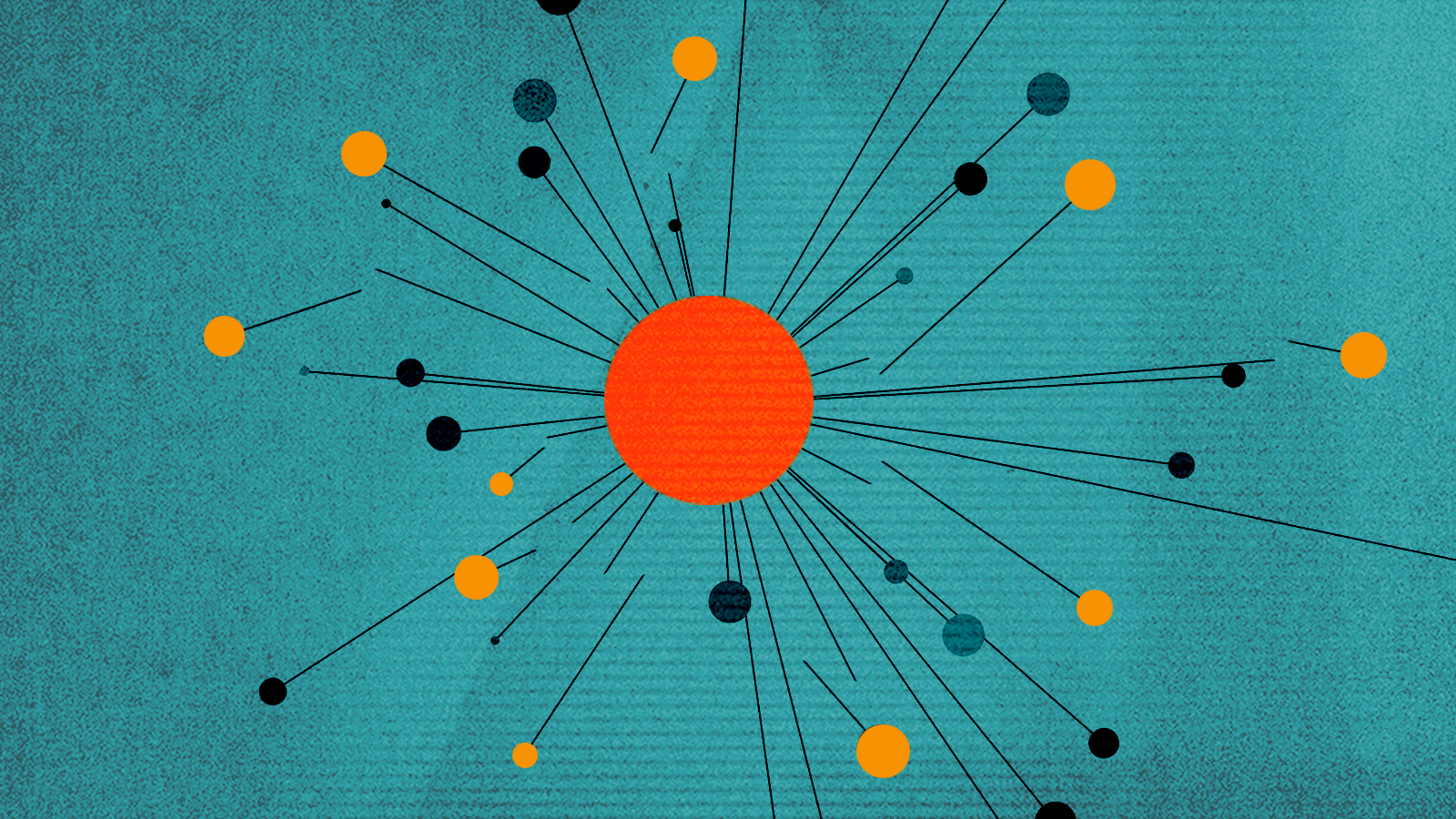In the face of international sanctions and a global focus on Russia’s procurement of unmanned aerial vehicles (UAVs) and drone components from Iran and China, Russia’s technology sector has been quietly bolstering its domestic drone capabilities.
Previously unknown entrepreneurs and enterprises have been hard at work, developing drone-related products and software with significant military applications, a move that underscores the government’s determination to become self-reliant in this sector.
In February, then-Defense Minister Sergei Shoigu visited a drone production facility in the Udmurt Republic in central Russia. The facility is run by Zala Aero, a company that has been under various blocking sanctions and export restrictions by the U.S., U.K., and European Union since last year for its support of Russia’s defense sector. Despite these sanctions, Zala Aero has been actively involved in the development and supply of UAVs for the Russian military since at least 2020. This includes the production of the Zala Lancet autonomous precision strike kamikaze drones, which have been used by Russian forces in Ukraine and Syria.
Previously unknown entrepreneurs and enterprises have been hard at work, developing drone-related products and software with significant military applications, a move that underscores the government’s determination to become self-reliant in this sector.
In February, then-Defense Minister Sergei Shoigu visited a drone production facility in the Udmurt Republic in central Russia. The facility is run by Zala Aero, a company that has been under various blocking sanctions and export restrictions by the U.S., U.K., and European Union since last year for its support of Russia’s defense sector. Despite these sanctions, Zala Aero has been actively involved in the development and supply of UAVs for the Russian military since at least 2020. This includes the production of the Zala Lancet autonomous precision strike kamikaze drones, which have been used by Russian forces in Ukraine and Syria.

Former Russian Defense Minister Segei Shoigu inspecting Lancet drone production at a Zala Aero facility in February 2024. Source: Zala Aero website
During his visit, Shoigu emphasized the importance of developing autonomous drones and enhancing Russian UAV production using the latest emerging technologies. This, he said, was crucial for Russia to compete in modern warfare.
Partnership with Defense Universities
In a bid to bolster domestic expertise in UAV technology, Zala Aero has established partnerships with six Russian universities over the last year and a half. The goal is to develop academic programs that train Russian specialists in this field.
As of April 2024, two of these partner institutions, including the Bauman Moscow State Technical University, have launched dedicated Masters programs in partnership with Zala Aero. At Bauman University, the program is specifically focused on optical technology, a critical component of drone technology.
Bauman University was sanctioned by the U.S. in November 2023 for operating technical courses on military technology in partnership with Rostec, a state-owned defense conglomerate.
Alongside these efforts, Zala Aero has continued to acquire western-manufactured electronic components, managing to secure tens of millions of dollars worth of semiconductors, circuit boards, optical equipment, and other flagged high-priority dual-use goods through intermediaries in Hong Kong, Uzbekistan, Türkiye, and elsewhere since the invasion of Ukraine.
Entrepreneurs Step Forward
The urgency of Moscow's push for increased domestic UAV capacity was underscored by Shoigu’s visit to the Zala Aero facility. This urgency, fueled by western sanctions that continue to hinder Russia's ability to acquire western-origin goods necessary for its defense and military production, has also propelled Russian entrepreneurs to the forefront of this endeavor.
One such entrepreneur is Nikolay Ryashin.
In December 2023, Ryashin met with the board of directors of a petrochemical holding company based in Tatarstan to pitch an autonomous drone launch station network developed by Rusdroneport LLC and HIVE. Ryashin owns half of Rusdroneport and is the CEO of HIVE.
Rusdroneport, founded by Ryashin in the aftermath of Russia’s invasion of Ukraine, specializes in developing autonomous drone launch platforms, or drone ports, that can operate as defense systems. These systems have witnessed a surge in demand as drone attacks, reportedly launched from Ukraine, have targeted oil refineries, military facilities, and other critical infrastructure inside Russia.
Ryashin has stated that his companies and business model aim to make drone operations less dependent on human intervention, thereby significantly increasing efficiency and response time as a defensive countermeasure against drone attacks.
This business purpose is evident in his role as the CEO of HIVE, a company that focuses on autonomous drone operation, surveillance, and monitoring. Launched in 2019 as a joint project between Ryashin, Gaskar Grupp OOO, and Dronoport OOO, HIVE uses software to train drone systems to swiftly identify and respond to anomalies.
Partnership with Defense Universities
In a bid to bolster domestic expertise in UAV technology, Zala Aero has established partnerships with six Russian universities over the last year and a half. The goal is to develop academic programs that train Russian specialists in this field.
As of April 2024, two of these partner institutions, including the Bauman Moscow State Technical University, have launched dedicated Masters programs in partnership with Zala Aero. At Bauman University, the program is specifically focused on optical technology, a critical component of drone technology.
Bauman University was sanctioned by the U.S. in November 2023 for operating technical courses on military technology in partnership with Rostec, a state-owned defense conglomerate.
Alongside these efforts, Zala Aero has continued to acquire western-manufactured electronic components, managing to secure tens of millions of dollars worth of semiconductors, circuit boards, optical equipment, and other flagged high-priority dual-use goods through intermediaries in Hong Kong, Uzbekistan, Türkiye, and elsewhere since the invasion of Ukraine.
Entrepreneurs Step Forward
The urgency of Moscow's push for increased domestic UAV capacity was underscored by Shoigu’s visit to the Zala Aero facility. This urgency, fueled by western sanctions that continue to hinder Russia's ability to acquire western-origin goods necessary for its defense and military production, has also propelled Russian entrepreneurs to the forefront of this endeavor.
One such entrepreneur is Nikolay Ryashin.
In December 2023, Ryashin met with the board of directors of a petrochemical holding company based in Tatarstan to pitch an autonomous drone launch station network developed by Rusdroneport LLC and HIVE. Ryashin owns half of Rusdroneport and is the CEO of HIVE.
Rusdroneport, founded by Ryashin in the aftermath of Russia’s invasion of Ukraine, specializes in developing autonomous drone launch platforms, or drone ports, that can operate as defense systems. These systems have witnessed a surge in demand as drone attacks, reportedly launched from Ukraine, have targeted oil refineries, military facilities, and other critical infrastructure inside Russia.
Ryashin has stated that his companies and business model aim to make drone operations less dependent on human intervention, thereby significantly increasing efficiency and response time as a defensive countermeasure against drone attacks.
This business purpose is evident in his role as the CEO of HIVE, a company that focuses on autonomous drone operation, surveillance, and monitoring. Launched in 2019 as a joint project between Ryashin, Gaskar Grupp OOO, and Dronoport OOO, HIVE uses software to train drone systems to swiftly identify and respond to anomalies.

UAV launching from a HIVE automated drone port. Source: YouTube
In 2022, Rusdroneport and HIVE deployed their product for testing at Western Siberian Petrochemical Complex LLC, where the technology is being used as part of an observation network for security monitoring and perimeter defense measures. As of December 2023, this technology was being considered for use in Russian energy, petrochemical, and oil facilities as a countermeasure against drone attacks.
Rusdroneport LLC and Dronoport OOO are members of the Innopolis Special Economic Zone and the Aeronext Association, respectively. Both networks are home to companies involved in the Russian defense industrial production complex that have imported tens of thousands of dollars of restricted foreign components used in drone production.
Hobbyists
As Russia's domestic UAV research and development technology continues to grow, it's not just established entrepreneurs and defense companies that are reaping the benefits. Amateur networks are increasingly stepping into the fray, finding lucrative opportunities in this burgeoning sector.
These amateur UAV developers conduct their recruitment, product development, advertising, and other business activities primarily on social media sites like Telegram. They procure components for drones through informal channels like AliExpress orders, as well as through more direct partnerships with manufacturers abroad.
These amateur networks often serve as suppliers to larger conglomerates involved in the Russian defense industrial base and provide equipment that is then used for research in areas like AI, further underscoring their importance in the broader ecosystem of Russia's UAV sector.
Rusdroneport LLC and Dronoport OOO are members of the Innopolis Special Economic Zone and the Aeronext Association, respectively. Both networks are home to companies involved in the Russian defense industrial production complex that have imported tens of thousands of dollars of restricted foreign components used in drone production.
Hobbyists
As Russia's domestic UAV research and development technology continues to grow, it's not just established entrepreneurs and defense companies that are reaping the benefits. Amateur networks are increasingly stepping into the fray, finding lucrative opportunities in this burgeoning sector.
These amateur UAV developers conduct their recruitment, product development, advertising, and other business activities primarily on social media sites like Telegram. They procure components for drones through informal channels like AliExpress orders, as well as through more direct partnerships with manufacturers abroad.
These amateur networks often serve as suppliers to larger conglomerates involved in the Russian defense industrial base and provide equipment that is then used for research in areas like AI, further underscoring their importance in the broader ecosystem of Russia's UAV sector.







